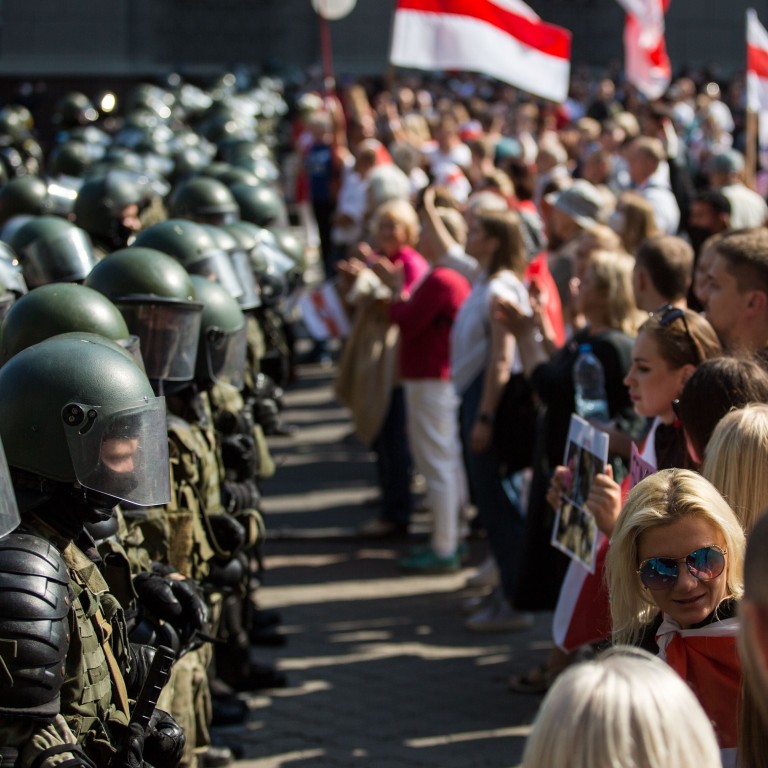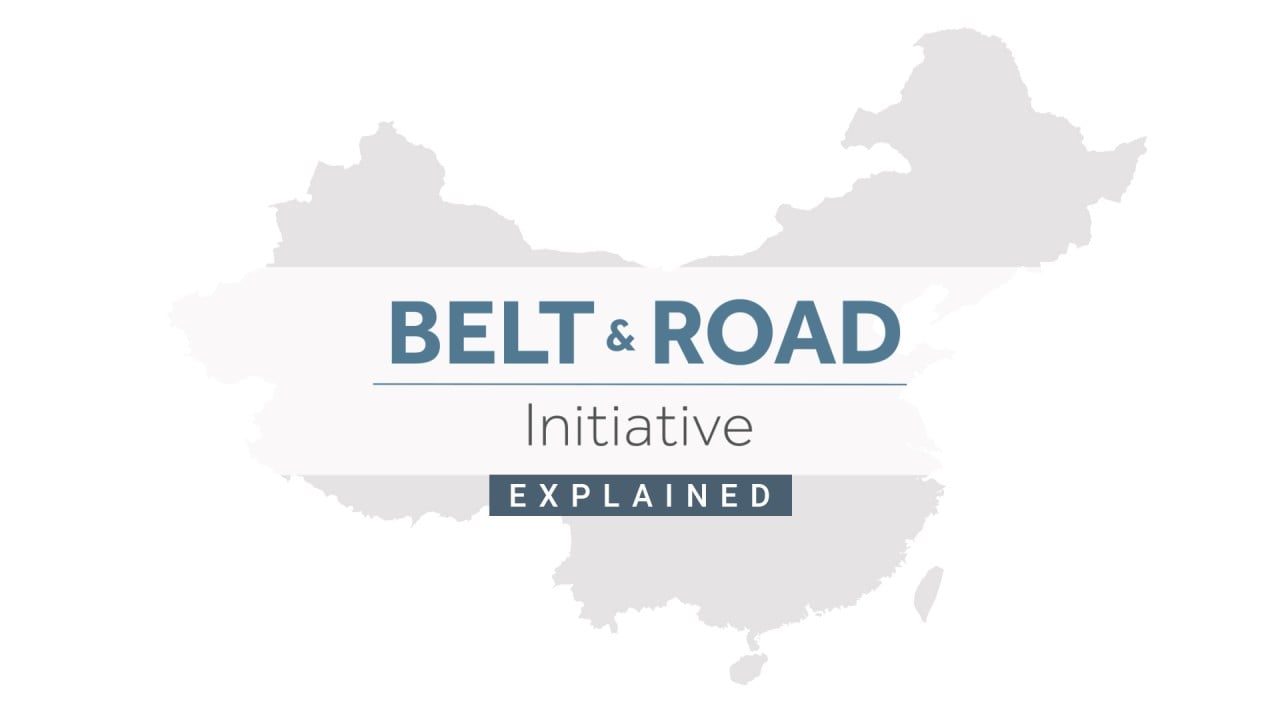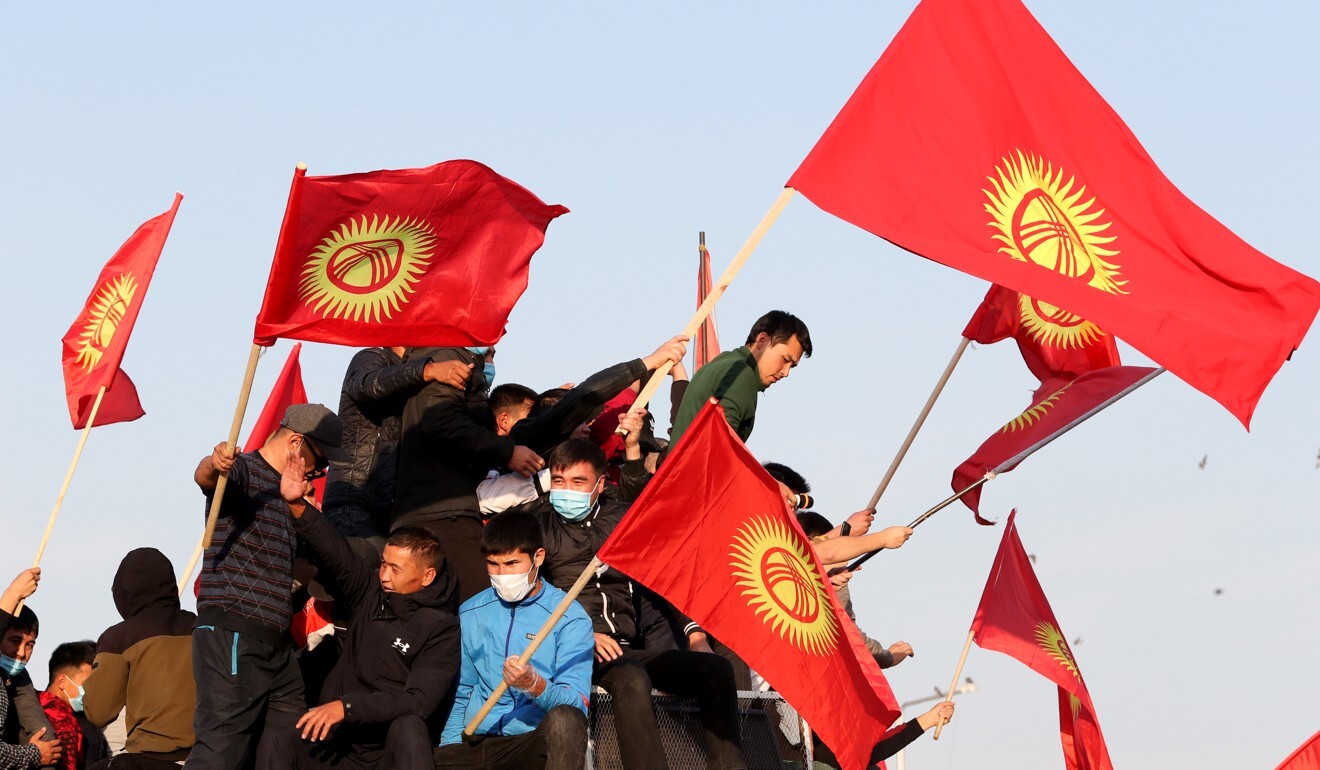
Why China playing bystander to the trouble in Eurasia is not ideal
- Beijing’s reluctance to get involved in the unrest in Belarus, Nagorno-Karabakh and Kyrgyzstan is in line with its traditional attitude towards conflicts that do not impinge on its own security
- However, given Beijing’s growing global influence, its disinterested posture muddies the waters for others trying to resolve unrest
The question of whether China should have a view on all of this instability is a reflection of its place in the world today.
In reality, China’s trade with these countries is quite limited. While Beijing is often the fastest-growing trade partner or investor, the money involved is fairly small.

02:31
Deadly clashes between Armenia and Azerbaijan reignite over Nagorno-Karabakh
All of the countries in question are former members of the Soviet Union. Perhaps China sees this as a Russian problem, up to Moscow to manage through the sphere of influence it inherited and continues to exert influence over. Yet, China has not always appreciated how Russia has handled such problems in the past.
Apple bows to Moscow’s pressure by showing annexed Crimea as Russia

02:35
Belt and Road Initiative explained
The truth is that China is a disinterested international power. Its interests outside are only relevant insomuch as they impact China directly, and more specifically, the Communist Party’s rule. Consequently, countries of marginal economic interest and little geostrategic importance can be left to their own devices, or to others. When China does have a direct interest in parts of Eurasia, it can and does focus its efforts.
It is also not clear that China would know what to do even if it could. Beijing has a limited track record of bringing warring factions to the table or of getting political factions within a country to stand down. China prefers the stability offered by strongman leaders, preferably ones in uniform, but will just as happily work with whoever comes to power.
As Armenia and Azerbaijan clash, where will China stand?

Non-interference plays into China’s persistent foreign policy credo. In refusing to get involved, but offering a hand of engagement to whoever comes out on top, China’s message is that it is letting each country have its own history and is not meddling, in contrast to the American-led West.
But this posture is at odds with China’s growing investments and economic footprint globally. Conflicts are infrequently bound by borders. While China may sit loftily above conflict, others do not, all of which creates instability and economic damage.
While an overly activist Beijing is a source of concern, China the disinterested superpower is not necessarily a good thing. Given China’s position on the world stage and economic clout, it is carving out a position for itself in most capitals. When chaos breaks out, people look to understand Beijing’s view and need to keep it in mind when making decisions. If China is inactive, it leaves a potential spoiler which could stymie efforts by others to bring resolution.
Raffaello Pantucci is senior associate fellow at the Royal United Services Institute (RUSI) in London

